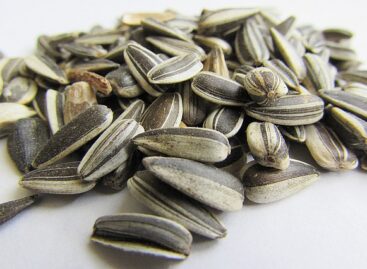Ecologists: the quality of European fresh waters is not improving
According to a new international study published with the cooperation of Hungarian researchers, the growth of biological diversity in European fresh waters has stopped, therefore the attention of decision-makers is called to urgent action.

(Photo: Pixabay)
In a study published in the journal Nature at the beginning of August, the researchers analyzed the changes in freshwater invertebrate communities between 1968 and 2020 – read the ELKH’s announcement sent to MTI on Tuesday. In the article, the researchers highlighted the extreme sensitivity of freshwater ecosystems and the long-term negative consequences of human impacts on biodiversity. The main authors of the study are Peter Haase, professor at the Senckenberg Research Institute and Natural History Museum in Frankfurt, and Ellen A.R. Welti, an associate at the American Smithsonian Conservation Ecology Center. they were. Gábor Várbíró, Institute of Aquatic Ecology of the ELKH Ecological Research Center (ÖK VÖI) and Zoltán Csabai, researcher of the University of Pécs (PTE) also contributed to the research.
According to the report, the research is based on a comprehensive data set from 22 European countries, consisting of 1,816 sample series and 26,668 samples, containing approximately seven hundred thousand individuals of 2,668 taxa
Hungarian researchers participated in the compilation and analysis of the data.
“Although many efforts have been made in recent decades to protect and restore freshwater ecosystems, the new study highlights that additional challenges are facing these communities. The introduction of the EU Water Framework Directive, more efficient wastewater treatment, reduction of hydromorphological loads and other similar initiatives have brought positive changes, in the state of fresh waters before the 2010s, however, the improvement slowed down significantly after that, and nowadays, despite the additional measures, it has practically stopped,” they wrote.
The researchers believe that the slowdown observed since the 2010s points to the decreasing effectiveness of today’s measures
This shows that the steps taken so far are not enough in themselves to ensure a sustainable future. One explanation for the slowdown could be that the momentum of restoration is running out, and new stressors are emerging or existing ones are intensifying (for example, the appearance of new types of pollutants, perhaps the impact of a changing climate). These factors could slow and potentially reverse the increase in biodiversity, they noted. In line with this hypothesis, the researchers showed that the improvement and restoration of biodiversity was smaller in the rivers of areas with a faster warming climate, in the river sections passing through large cities and agricultural areas and below the cross dams. Researchers warn that climate change, the spread of invasive species, the increasing presence of pollutants introduced during human activities, or habitat transformation and urbanization are all factors that together hinder the maintenance of the biodiversity of freshwater ecosystems and the improvement of surface water conditions. They emphasized that in order to ensure the long-term viability of freshwater ecosystems, a consensus is needed that involves political decision-makers, scientists and civil communities alike.
MTI
Related news
The Ministry of Agriculture has issued a notice on the use of ENAR data in support policy
In the case of animal-based subsidies financed from EU funds,…
Read more >Farmer-centric agricultural policy after 2027 receives unanimous support
The EU member states’ agriculture ministers have adopted Council conclusions…
Read more >Slow but steady growth in sunflower producer prices
Oil World experts expect a global sunflower seed harvest of…
Read more >Related news
Most major grocery chains will keep their stores open until noon on December 24th
Most of the large grocery chains will keep their stores…
Read more >Recognition of Consumer Protection Excellence: Honoring the Best of 2024
This year’s outstanding consumer protection officers and special award recipients…
Read more >The Joy of Giving! – SPAR stores collect non-perishable food for people in need
The Hungarian Maltese Charity Service and SPAR Hungary have launched…
Read more >








